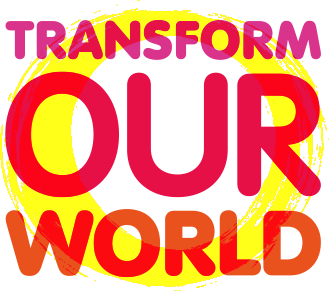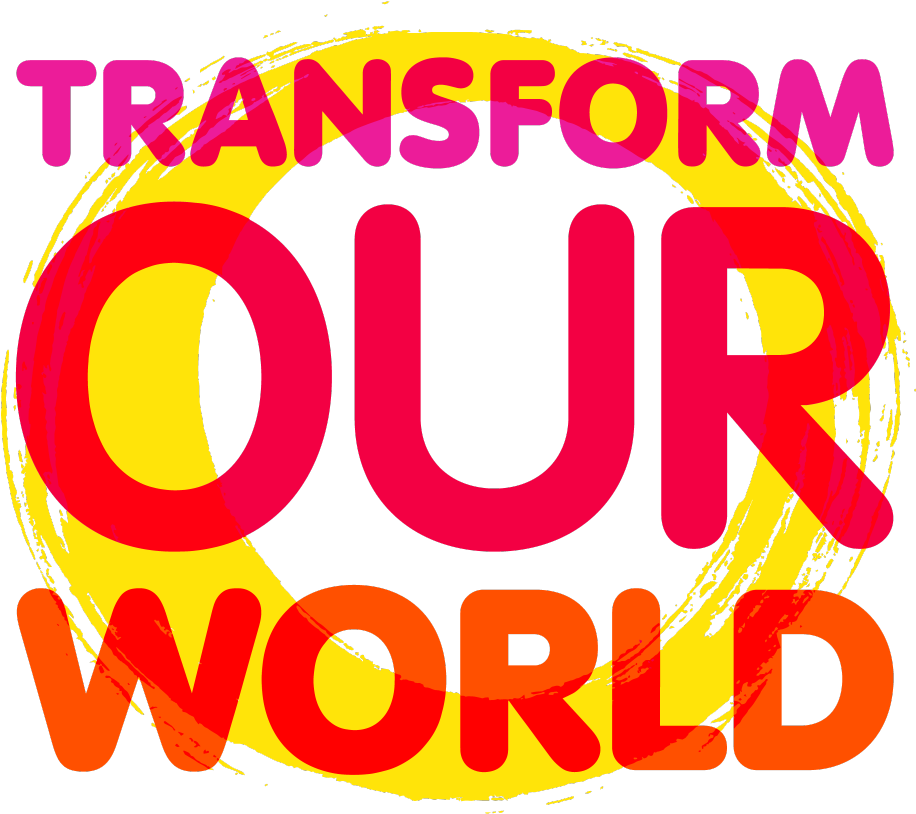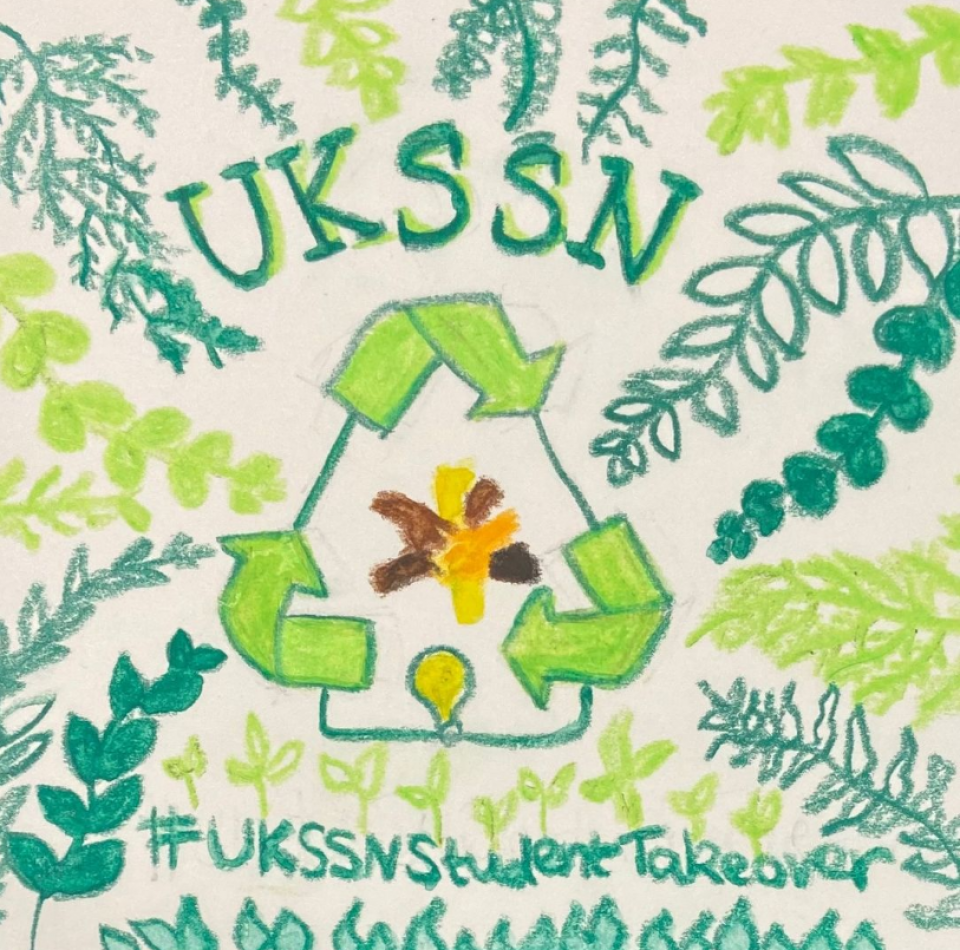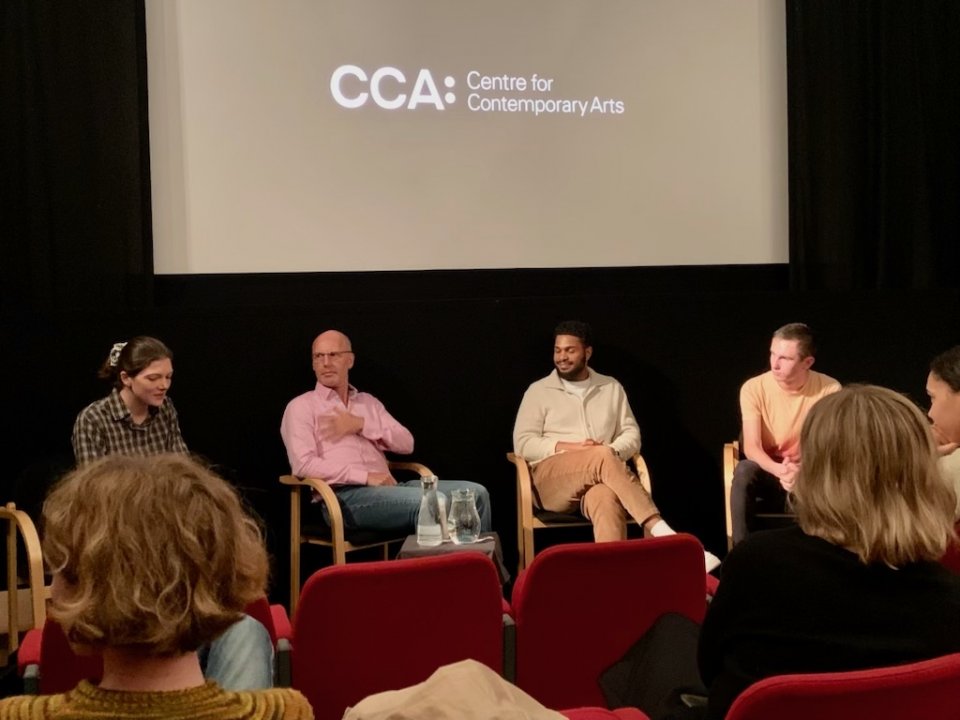On 9th February UKSSN were honoured to have Charly Cox, the co-founder of Climate Change Coaches educate us on the psychology behind climate action. This talk provided us with numerous insights about how to engage more people with climate activism, and the most effective way to do this.
Prior to convincing someone to take action against climate change we need to understand their relationship to the issue, and what stage they are at. This diagram succinctly explains that when we lack a sense of agency, we can stall taking action on climate change. Here Charly explained that ‘being in relationship’ with climate change meant being engaged. Many people are engaged with the issue but don’t feel able to do anything about it. The most important part of this diagram is that apathy is not what causes people a lack of action, but a feeling of powerlessness.

What is climate change coaching?
Coaching is not about giving someone the solution and actions they can take towards climate action; it is more about making that person feel empowered and know that they can make a difference and allowing them to define the actions they would enjoy taking. A key point Charly raised, is that we are helping others to recognise that they have the answers within themselves to tackle their feelings of powerlessness.
Who is climate change coaching for?
Anyone – with the right skills can influence and inspire others to act and make changes for the climate. Every conversation and every individual action can initiate wider waves of change.
What is our aim?
Our aim by the end of a conversation in which we use climate change coaching skills is to get someone to feel a high sense of motivation and be in a state of high action because this is where climate action is sustainable. Often motivation is overlooked, when in fact if someone is motivated in regard to climate action their brain will be more receptive to changes in their habits.

What is our role?
Usually when we hear someone is not engaging in climate change action, we turn to the 3Cs (counselling, colluding, clashing) but this is not conducive to making someone feel empowered or feel like they have agency.

Quick summary of the 3Cs:
- Counselling
Overloading someone with all of the facts, figures and data generally doesn’t create sustainable action against climate change. Irrespective of how compelling the nature of science surrounding climate change is, ultimately data doesn’t change behaviour, positive emotions and belief do.
- Colluding
When someone discusses the hopelessness they experience when tackling climate change it is difficult to know how to respond. However, colluding in this disempowerment – either by agreeing that nothing can be done or venting about how frustrating the situation is - does not assist the situation. While it may feel powerful in the movement it merely reinforces the notion that you cannot make a difference which is false.
- Clashing
Not valuing and appreciating someone else’s perspective is a way we can lose people in this fight against climate change. No one will listen or change their actions if they feel attacked thus we must take a different approach.
Often, we jump straight from the issue - for example, plastic pollution, climate change, lack of biodiversity - to action. For example: stop buying fast fashion, adopt a vegan diet, etc. But we miss a CRITICAL step: emotion. Charly discussed that to engage people we must put emotion first and listen to someone’s emotional relationship to the topic and change THAT instead of jumping to the 3Cs. People listen when they feel a connection to us but if they don’t feel understood they will not alter their actions.
In order to connect with people it is critical that we do not ignore these big emotions, and instead tune in to people’s feelings. The key to climate action is relationships.
Disbelief in 2D

This image highlights the two primary reasons people feel disempowered: a lack of self-belief and uncertainty that together as a community we can make a difference.
The concept of systems change can appear as an abstract and massive issue that frightens people from tackling it. It is helpful to provide people with examples of how society has already made significant shifts that can begin to disrupt this fear. For example, suffragettes getting women the vote, even if this seems like a long time ago, exemplifies our power and the change we can cause.
How to use a climate change coaching approach…
Resistance to change
Often people are resistant to taking action against climate change but we do not want a fact fight or for people to avoid challenging their beliefs so we must choose non-violent communication in coaching. To address this issue, this question is particularly helpful: “What matters/is important to you about…?”, since it reaches the core value behind any resistance present they may have towards climate change. Pushing someone towards change is likely to elicit difficult feelings since they may feel threatened, leading them to come up with reasons to stall change, so it is important to meet them with compassion and truly listen to them. We do not want compliance, but a commitment to change so approaching people with a positive regard is important.
Body language
Body language can reveal a lot about someone’s emotions surrounding a topic, so pay attention and tune into that. It is unnecessary to reword the person’s feelings towards the issue, simply playing the words back after attentively listening can be pivotal in making them feel seen and heard.
No advice
A point I cannot stress enough is do not give advice, ask this person how they have previously circumvented an issue which evoked similar emotions. This will help them realise their capability in climate action and feel more empowered.
What are the limitations to coaching?
Coaching can make a big difference in helping someone change their attitude towards climate change, but it is not the entire solution. Taking action is also a significant part so ask them ‘Where can you go for knowledge’ and hold them to account. However, remember to check that there is an emotional connection before you leap into knowledge check.
In summary, climate action that counts requires a head-heart balance and to coach someone, we must develop an emotional connection first and truly listen to what they are saying. We can help empower others and facilitate changes to act against climate change.
For more information read the book ‘Climate Change Coaching: the power of connection to create climate action’ co-authored by Charly Cox and Sarah Flynn (Open University Press, 2022), which is a useful source for more in-depth information about climate change coaching.
-By Anusha, Year 12 student, London

Contact
If you would like to know more about Transform Our World, or any of our programmes, please get in touch.
Thank you for submitting your enquiry! We are currently receiving a large number of enquiries and are trying our best to get back to people as soon as possible. In the meantime, you might find one of the following links helpful:
Access catch up content from the Transform Our World Youth Summit
As a Transform Our World user, you can access the content from the Transform Our World Youth Summit and catch up on the content across three themed days, looking at individual actions we can do, people in power we can influence and the importance of living our true values.
Follow the links below and check out the timestamp guide to navigate the content.
- Are you a teacher? Learn about how to use the website here.
- Looking for teaching resources? You can find our collection of highly-rated resources here.
- Looking for something more long-term? Check out our featured programmes here.
- Want to see what other schools have been up to? Have a read of some case studies here.
- Alternatively, take a look at our FAQs and About pages as they might help to answer your question(s).
All the best,
The Transform Our World team

is brought to you by







